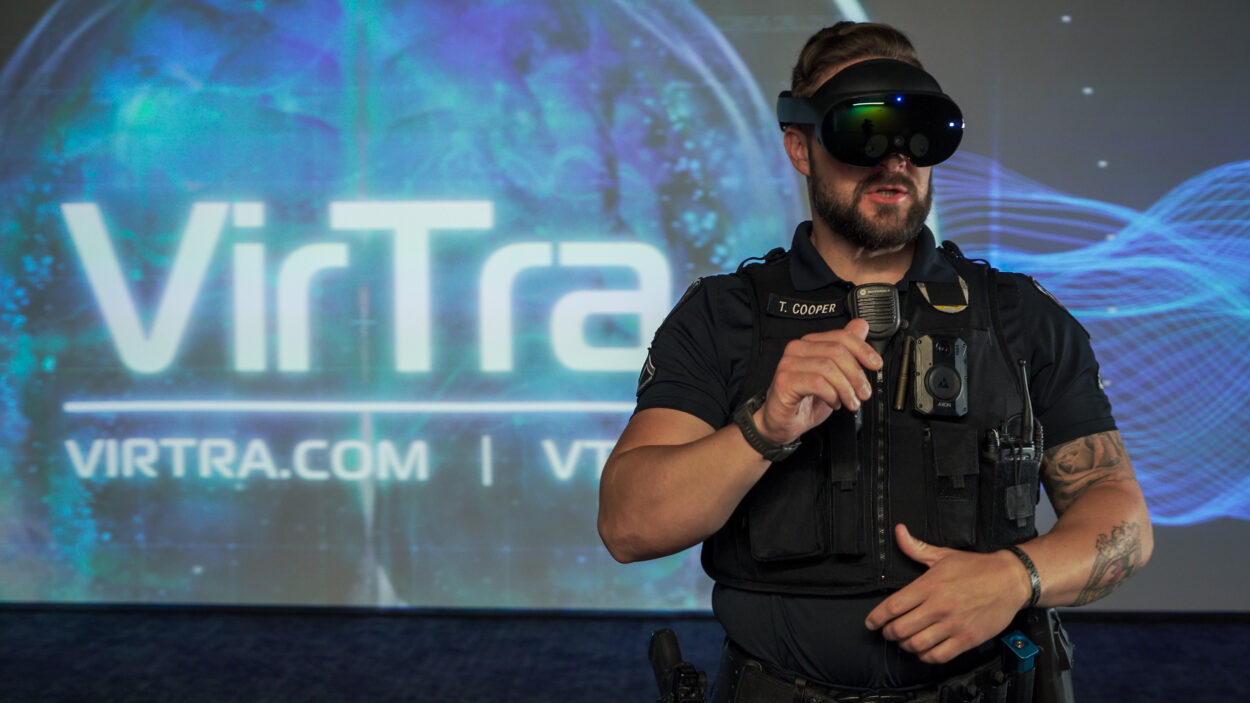
The demand for law enforcement continues to grow, and agencies across the country are turning to innovative technologies to improve officer preparedness and public safety. One of the most impactful innovations reshaping the training landscape is virtual reality (VR) simulation training. This redefines how officers learn, practice, and respond in the real world.
The Shift Towards Virtual Reality in Training
Traditional training methods, while valuable, often fall short in replicating the stress, unpredictability, and variety of real-life encounters officers face daily. That’s where VR simulation steps in. Departments such as the Boston University Police Department and the Johnson County Sheriff’s Office have already integrated VR programs into their training curriculum. These programs offer immersive, repeatable, and data-driven scenarios that allow officers to build confidence in a controlled environment.
According to the Wall Street Journal, many companies are now realizing the practical workplace applications of virtual reality, and law enforcement is no exception. With VR, departments can reduce risk, improve consistency, and better prepare officers without the logistical challenges of real-world exercises.
Benefits of VR-Based Law Enforcement Training
- Realistic Scenario Simulation: Officers experience lifelike situations that mirror what they may encounter on duty, from active shooter situations to high-stress traffic stops.
- Safety and Risk Reduction: Trainees can make critical decisions in real-time without physical danger, making it a safe way to learn from mistakes and refine tactics.
- Cost-Effective Long-Term: Although the initial investment may be higher, VR reduces recurring costs such as ammunition, travel, and facility use associated with traditional training.
- Mental Health and De-Escalation Training: Advanced VR systems now include scenarios that train officers on how to identify and respond to individuals experiencing autism, anxiety, schizophrenia, and other mental health challenges.
Case Studies and Real-World Applications
In a recent YouTube feature, the Johnson County Sheriff’s Office demonstrated how they use VR to simulate high-pressure environments. Similarly, the Denver Police Department showcased their use of VR to train new recruits with an emphasis on real-world readiness and de-escalation tactics.
This growing adoption signals that VR is more than a trend – it’s becoming a standard for progressive law enforcement agencies nationwide.
VirTra’s Role in Shaping the Future of Police Training
At VirTra, we’re proud to be at the forefront of this transformation. Our VR-based platforms, including the V-XR® headset and the V-300® immersive simulator, provide agencies with the tools they need to build safer communities. Our training modules are developed in collaboration with subject matter experts and include everything from judgmental use-of-force scenarios to evidence-based mental health response training.
With over 250 agencies using our systems worldwide, we’re committed to ensuring that officers are not only prepared for the moment – but for the future of policing.
Conclusion
Virtual reality is revolutionizing how law enforcement officers train. It enables scalable, effective, and safe preparation for the increasingly complex situations they face. As more agencies adopt this technology, VR will continue to play a critical role in shaping responsible, confident, and community-focused policing.
If your department is ready to experience the next generation of law enforcement training, contact us to schedule a demo today.
Recently Published
Join Our Newsletter







